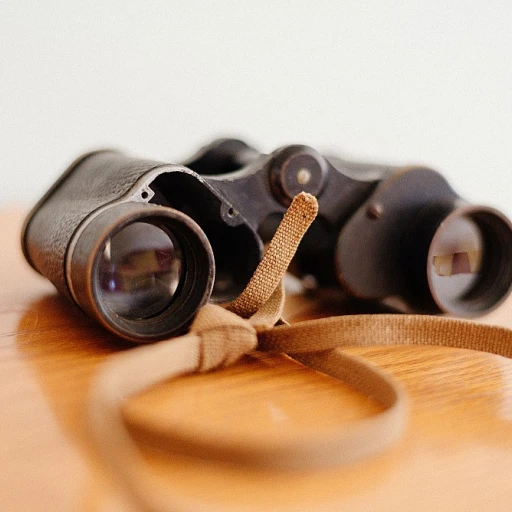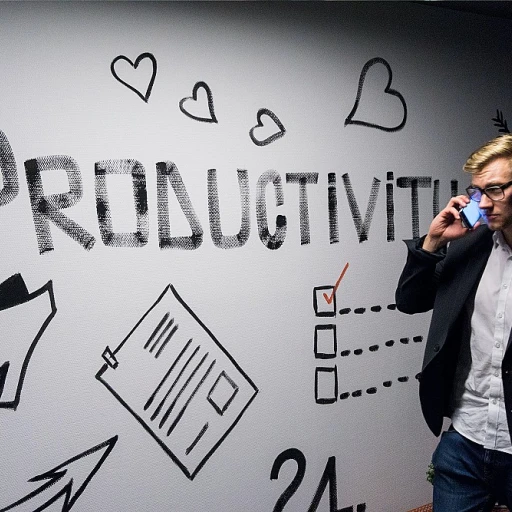
The Role of Humor in Interviews
The Charm and Effectiveness of Humor in Job Interviews
In the world of job interviews, striking the right balance between professionalism and personality can be a game-changer. Humor, in particular, plays a pivotal role in setting the tone of an interview, showcasing the candidate's ability to engage, adapt, and problem-solve in real-time. It's not just about filling the room with laughter; it's about witnessing how a candidate handles unexpected or funny questions with grace and creativity. Utilizing humor effectively in interviews can help candidates stand out in a sea of equally qualified individuals. The ability to answer questions that are unusual and maybe even a bit funny demonstrates quick thinking and highlights creativity skills. It tests the candidate's sense of humor, representing how well they might fit into a company culture that values light-hearted yet meaningful interactions. Having funny questions sprinkled throughout the interview can break the ice, creating a more relaxed environment for both the interviewer and the interviewee. It opens up the dialogue, allowing candidates to showcase their favorite things about themselves or their past work experiences in a fun and engaging manner. This, in turn, can reveal much about their problem-solving skills and creativity ability that more traditional questions might not uncover. While crafting the perfect funny question takes some creativity and understanding of the company culture, it’s vital for recruiters to consider how these questions align with their overall interview strategy. It’s not just about getting a laugh, but about evaluating how a candidate thinks on their feet and their ability to incorporate humor into their professional life. Although this approach is not without its pitfalls, which are covered elsewhere, the benefits outweigh the risks when humor is wielded skillfully. By embracing humor, companies can pave the way for more dynamic and interactive job interviews that are informative and enjoyable for both parties.Benefits of Funny Interview Questions
The Advantages of Injecting Humor into Interview Questions
Integrating funny interview questions into a job interview can offer numerous advantages both for the employer and the candidate. By making the interview process more engaging, you not only lighten the mood but also gain insights into the candidate's personality and problem-solving skills.
Here's why humor can be a valuable tool during interviews:
- Breaking the Ice: A well-timed funny question can help break the initial tension that candidates often experience. This relaxed atmosphere can make them feel at ease and more likely to showcase their true abilities and work skills.
- Evaluating Creativity: Funny questions can reveal a candidate's creativity and ability to think outside the box. In some roles, especially those that require innovative problem-solving skills, this can be an essential quality to identify early on.
- Assessing Culture Fit: Humor in interview questions provides a unique opportunity to assess whether a candidate's sense of humor aligns with the company's culture. A sense of camaraderie and fun can enhance team dynamics and improve overall job satisfaction.
- Gauging Quick Thinking: Unconventional questions that require a fun response can demonstrate a candidate's ability to think on their feet. Quick thinking is a valuable trait, especially in fast-paced or challenging work environments.
Employers must carefully craft their funny questions to ensure they are appropriate and aligned with the job description. Done right, these questions not only make the interview more engaging but also provide deeper insights into a candidate's personal attributes, beyond what their resume might reveal.
Crafting the Perfect Funny Question
Crafting a perfect funny question for interviews requires a blend of thoughtfulness and creativity to ensure it effectively tests a candidate’s ability to think on their feet while fitting into the company culture.Understanding the Purpose
Funny interview questions should not be arbitrary. Their main objective is to give insight into a candidate’s quick thinking and problem solving skills while providing a glimpse into their sense of humor. This balance helps gauge if the candidate can handle unexpected situations with grace and creativity.Aligning with Company Culture
A funny question needs to reflect the organization's values and culture. Questions that fill this requirement not only help in identifying candidates with the right cultural fit but also make the job search process more enjoyable. It’s essential to ensure that these interview questions align with the overall impression the company wants to convey.Types of Funny Questions
- Open-ended Hypotheticals: These invite candidates to showcase their creativity and work through potential real-world scenarios with an element of fun. For example, "If you could be any character in a movie, who would you choose and why?"
- Problem Solving with a Twist: Ask questions that encourage fun yet require solving skills. "How would you respond to a sudden alien landing in the parking lot and they asked for the best lunch spot?" This not only provides insight into the candidate’s creativity but also their ability to think quickly.
- Personal Favorites: Sharing favorite things can be insightful. Asking about their favorite joke or funniest work memory helps understand the candidate’s personality and humor without veering too far from professionalism.
Balancing Fun with Professionalism
While crafting these questions, it's crucial to remain sensitive to boundaries to ensure that the candidate feels comfortable and respected throughout the process. The humor should never overshadow the primary objectives of the job interview or trivialize the importance of the position. By carefully selecting and crafting funny questions, interviewers can create a more engaging and insightful candidate experience that benefits both parties involved.Examples of Effective Funny Interview Questions
Bringing a Smile with Well Thought-Out Inquiries
Crafting funny interview questions can be an art form that requires a strategic mind and a sense of humor. But finding the right balance is key to ensuring you don't just aim to make candidates laugh, but also get them to reveal insightful personal qualities. It’s not just about being a fun interview; the questions asked should be designed to assess a candidate's quick thinking, creativity, and sense of humor. One effective approach is to ask questions that unleash a candidate's creativity. For example, asking how they might sell the concept of a swimming pool to a fish can reveal their ability to problem solve and think outside the box. This sorts of questions can fill the room with humor while giving a glimpse into how a candidate tackles unexpected challenges. Another strategy could be incorporating humor that ties into the company's culture. If your workplace values wit and a laid-back environment, question how a candidate might describe a favorite humorous incident at a previous job to gauge if they align with the organization's ethos. These funny interview questions are not just about getting a laugh; they help break down barriers, letting candidates show their true selves. While a good sense of humor is crucial in work environments, it also offers insights into how a candidate communicates under pressure. It’s beneficial if you let candidates know upfront about the use of unconventional questions. This can help prepare them to embrace the humorous side of job interviews, rather than catching them off-guard, potentially affecting their confidence. Ultimately, the right questions—whether more traditional or injected with humor—should aim to discover the best attributes of a candidate, particularly their creativity, quick thinking, and ability to gel well with the existing team. By approaching your job interviews with a touch of humor, you don’t just brighten the spirits but also craft a memorable, effective hiring experience.Potential Pitfalls and How to Avoid Them
Challenges of Integrating Humor Effectively
When incorporating funny interview questions into job interviews, it is essential to be mindful of potential pitfalls to ensure the process remains fair and constructive for every candidate. While humor can break the ice and highlight a candidate's creativity and quick thinking, it is crucial to balance this with the primary purpose of the interview.
One of the main challenges of using humor in interviews is ensuring that it is appropriate for all candidates and aligns with the company culture. Funny questions should be carefully crafted to respect all candidates' diverse backgrounds and experiences, avoiding any potentially offensive content. This sensitivity will help foster a welcoming atmosphere where candidates feel comfortable expressing their genuine selves.
Another potential pitfall is placing too much emphasis on humor, which could overshadow the candidate's actual skills and qualifications. While assessing a candidate's sense of humor can be insightful, it is important not to let it dominate the evaluation process over more critical aspects like problem-solving skills, experience, and technical proficiency.
Interviewers can also fall into the trap of expecting or requiring humor as part of the selection criteria, inadvertently disadvantaging those who may not naturally excel in delivering witty responses. Instead, interviews should appreciate varied forms of expression and the ability to answer questions thoughtfully, focusing on how a candidate's attributes fit with the role and the organization's values.
Lastly, time management is vital. While fun interview elements can make the process engaging, it's essential to allocate time wisely to ensure all necessary topics and interview questions are covered thoroughly. This ensures candidates fully showcase their abilities, allowing for comprehensive assessment.
By recognizing these challenges and preparing accordingly, companies can effectively incorporate humor into their interview strategies, creating a balanced approach that highlights a candidate's creativity ability, problem-solving skills, and compatibility with the company.












